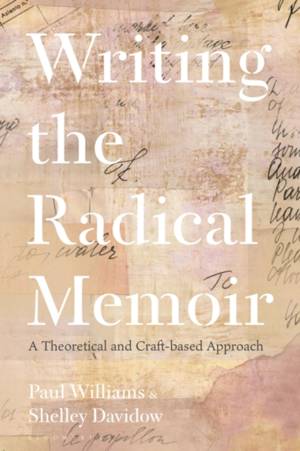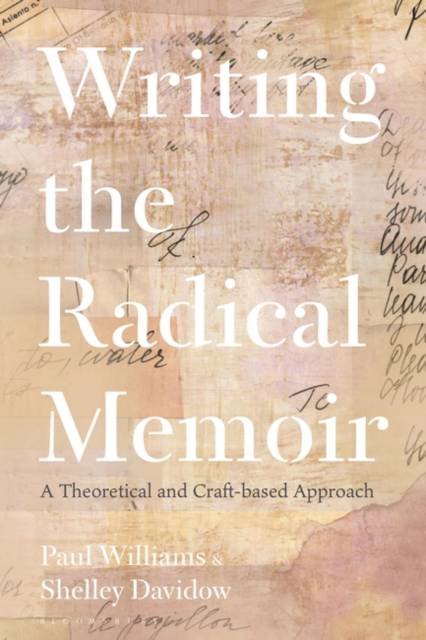
- Retrait gratuit dans votre magasin Club
- 7.000.000 titres dans notre catalogue
- Payer en toute sécurité
- Toujours un magasin près de chez vous
- Retrait gratuit dans votre magasin Club
- 7.000.0000 titres dans notre catalogue
- Payer en toute sécurité
- Toujours un magasin près de chez vous
Writing the Radical Memoir
A Theoretical and Craft-based Approach
Paul Williams, Shelley Davidow
Livre relié | Anglais
127,45 €
+ 254 points
Format
Description
For those that have mastered the basics of memoir and wish to probe this brand of creative nonfiction further, Writing the Radical Memoir uses salient theories about memory and the self to challenge assumptions about how we remember and tell the truth of our lives when we write about it. Innovative in approach and making new critical ideas accessible, each chapter maps out the key principles of such writers as Barthes, Lacan, Derrida, Lewis Mehl-Madrona, Philippe Le Jeune and Joseph Campbell, invokes literary examples to show how other writers have mastered the idea before reflecting on how you can practically apply the theory to your writing. With original exercises and prompts for further reading that bridge the gap between the theoretical and how it might be put into practice, the book is attentive to the multiple facets of the genre of nonfiction writing generally, covering such topics as:
- The writer/ reader contract
- How to embark on a thematic/ symbolic exploration of themes and incidents in your life
- How neuro-scientific theory can inform our understanding of memory and recall and what happens to our memories when we remember them
- Character development and the ethics of writing about real people
- How constructing your identity in memoir offers a chance to push back against traditional structures
- That memoir might not be preservation of your past but a process of self-erasure
- How J. M. Coetzee's Autrebiography trilogy challenges traditional biography
By bringing together lived experience, post-structuralist and postmodernist theories, praxis and artistic vision as a unique approach to writing memoir, this book encourages you to think the self, how it is portrayed, created, erased and made strange through the process of writing and remembering.
- The writer/ reader contract
- How to embark on a thematic/ symbolic exploration of themes and incidents in your life
- How neuro-scientific theory can inform our understanding of memory and recall and what happens to our memories when we remember them
- Character development and the ethics of writing about real people
- How constructing your identity in memoir offers a chance to push back against traditional structures
- That memoir might not be preservation of your past but a process of self-erasure
- How J. M. Coetzee's Autrebiography trilogy challenges traditional biography
By bringing together lived experience, post-structuralist and postmodernist theories, praxis and artistic vision as a unique approach to writing memoir, this book encourages you to think the self, how it is portrayed, created, erased and made strange through the process of writing and remembering.
Spécifications
Parties prenantes
- Auteur(s) :
- Editeur:
Contenu
- Nombre de pages :
- 184
- Langue:
- Anglais
Caractéristiques
- EAN:
- 9781350272200
- Date de parution :
- 18-05-23
- Format:
- Livre relié
- Format numérique:
- Genaaid
- Dimensions :
- 156 mm x 234 mm
- Poids :
- 439 g

Les avis
Nous publions uniquement les avis qui respectent les conditions requises. Consultez nos conditions pour les avis.






